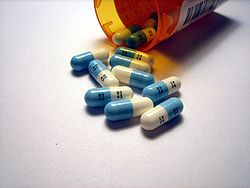
istockphoto
This is a surprisingly blunt view, even for a respected neuroscientist such as Eero Castrén. After all, millions of people throughout the world have been prescribed antidepressants, and pharmaceutical companies have made a billion-dollar business out of selling them. Surely the system cannot be entirely wrong?
Recent studies suggest that this may be the case. Research on animal models demonstrates that antidepressants are not a cure as such. Rather, their role is to restore plasticity in the adult brain. Antidepressants reopen a window of brain plasticity, which allows the formation and adaptation of brain connections through the patient’s own activities and observations, similarly to a young child whose brain and experiences about the world develop in response to environmental stimuli.
Correcting abnormal pathways
When cerebral plasticity is reopened, problems caused by false connections in the brain can be addressed. Such problems can be manifested, for example, as phobias. Studies conducted on animal models by Professor Eero Castrén’s research group at the University of Helsinki show that therapy helps to reduce fears for a time, but an antidepressant alone provides no relief. By combining the two, however, long-term effects can be achieved.
“Simply taking drugs is not enough. We must also show the brain what the desired connections should be,” Professor Castrén of the Neuroscience Centre explains.
The need for both therapy and medical treatment may also explain why antidepressants sometimes seem to have no effect. If the patient’s environment and situation remain unchanged, the drug-induced capacity of the brain to change will not make the patient feel better.
Reaching this point is the result of years of research. Scientists discovered as early as the 1960s that antidepressants affect neurotransmitters in the brain, such as serotonin. Later, antidepressants were found to increase neurotrophins and their ability to transmit signals in the brain. Only recently have scientists begun to explore the effects of drugs on plasticity of brain networks.
Enhancing the plasticity of the adult human brain through antidepressants has opened a whole new field of research for Eero Castrén. He has received a five-year grant of EUR 2.5 million from the European Research Council (ERC) to investigate mechanisms related to adult brain plasticity.
http://www.ncbi.nlm.nih.gov/pubmed/22194582
Full bibliographic information
Fear erasure in mice requires synergy between antidepressant drugs and extinction training.Karpova NN, Pickenhagen A, Lindholm J, Tiraboschi E, Kulesskaya N, Agústsdóttir A, Antila H, Popova D, Akamine Y, Bahi A, Sullivan R, Hen R, Drew LJ, Castrén E.Science. 2011 Dec 23;334(6063):1731-4
Source: Helsingin yliopisto (University of Helsinki)
